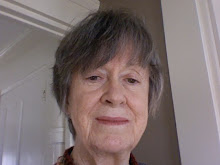Opinion – 5 July 2025
1 day ago
Retired scientist/priest in the Episcopal Church.
 Eric Reitan has written an article on Religion Dispatches called Presidential Pep Talks and the Religion of Fear: How Did an Uncontroversial Speech Become a National Controversy. He articulates the differences between a religion of hope and a religion of fear and why those who are part of the religion of fear do not want the President to appear moderate and human. He refers to these people as belonging to a religion of fear believe in a vengeful God who visits his creatures who disobey with disasters such as 9/11. They believe it is crucial to keep the followers of the religion of hope out of power, so that this vengeful God may be appeased by forcing everyone to "toe the line." But what I really liked about the article was his description of the religion of hope:
Eric Reitan has written an article on Religion Dispatches called Presidential Pep Talks and the Religion of Fear: How Did an Uncontroversial Speech Become a National Controversy. He articulates the differences between a religion of hope and a religion of fear and why those who are part of the religion of fear do not want the President to appear moderate and human. He refers to these people as belonging to a religion of fear believe in a vengeful God who visits his creatures who disobey with disasters such as 9/11. They believe it is crucial to keep the followers of the religion of hope out of power, so that this vengeful God may be appeased by forcing everyone to "toe the line." But what I really liked about the article was his description of the religion of hope:The religion of hope is beautifully embodied in the life and work of Dr. Martin Luther King Jr., and is concisely expressed in his conviction that “beneath the harsh appearances of the world there is a benign power”—that is, a transcendent benevolence that cares about the good and supports those who work for justice. A key feature of the religion of hope is that, because the root of creation is good, no existing thing is essentially bad or evil. Most significantly, this means that every person is a product of a benevolent creator and so not only has inherent value and dignity, but has the capacity within them for moral goodness.
No one is irredeemably evil. No one is so far gone that they have been rendered incapable of compassion; even if, as may be the case, this capacity has been buried beneath layers of prejudice and fear. Because all of us are products of the same divine benevolence, and because our divine creator is a real power moving within all of us to nurture what is good, we can enter conflicts in the hope that we can reach and connect with our opponents’ best selves, that fundamental part of who they are that is responsive to the needs of others.
This is not to say that evil systems and forces aren’t real, and that people do not become deeply entangled with them; nor that injustices can be overcome without struggle, or that there will never be a need to apprehend and incapacitate dangerous people; nor that our duties to protect those in our care will never call us to harm an aggressor in their defense.
But it does mean that even our most dangerous opponents will be seen as fellow human beings with a capacity to care about the good. Those who live by the religion of hope are therefore more inclined to pursue reconciliation even when there are risks, and more likely to forgive even when a past wrong is truly grave.
And when and where the religion of hope prevails, it is difficult to foster an attitude of paranoid hysteria. Even when threats and injustices are real, those who live by the religion of hope look for ways to overcome those threats and injustices by building and recognizing connections of common humanity. They are not easily convinced by those who fabricate dangers out of thin air, and they are not likely to view an occasion for staking out common ground and shared values as itself a danger from which our children must be shielded.
If you think not, think Martin Luther or Ulrich Zwingli or John Calvin or Mary Ward or Mary MacKillop or John Cardinal Henry Newman or Teilard de Chardin or Hans Kung. Think of any number of others without whom we would still be selling relics or teaching merit theology or refusing to allow women religious on the streets or rejecting the concept of the sensus fidelium or refusing to attend the weddings of our children in Protestant churches or disdaining to deny science, scientists, the movement of the sun and evolution.
The continued suppression of thinkers who call for the discussion and study of the role of women in church and society is not suppressing anything. In fact, more and more men and women are beginning to speak out about it. Which is where Sr. Louise and Archbishop Pilarczyk come in: Like the English, he has the power of the past on his side; like Gandhi, she has the power of the present and the promise of the future on hers.




